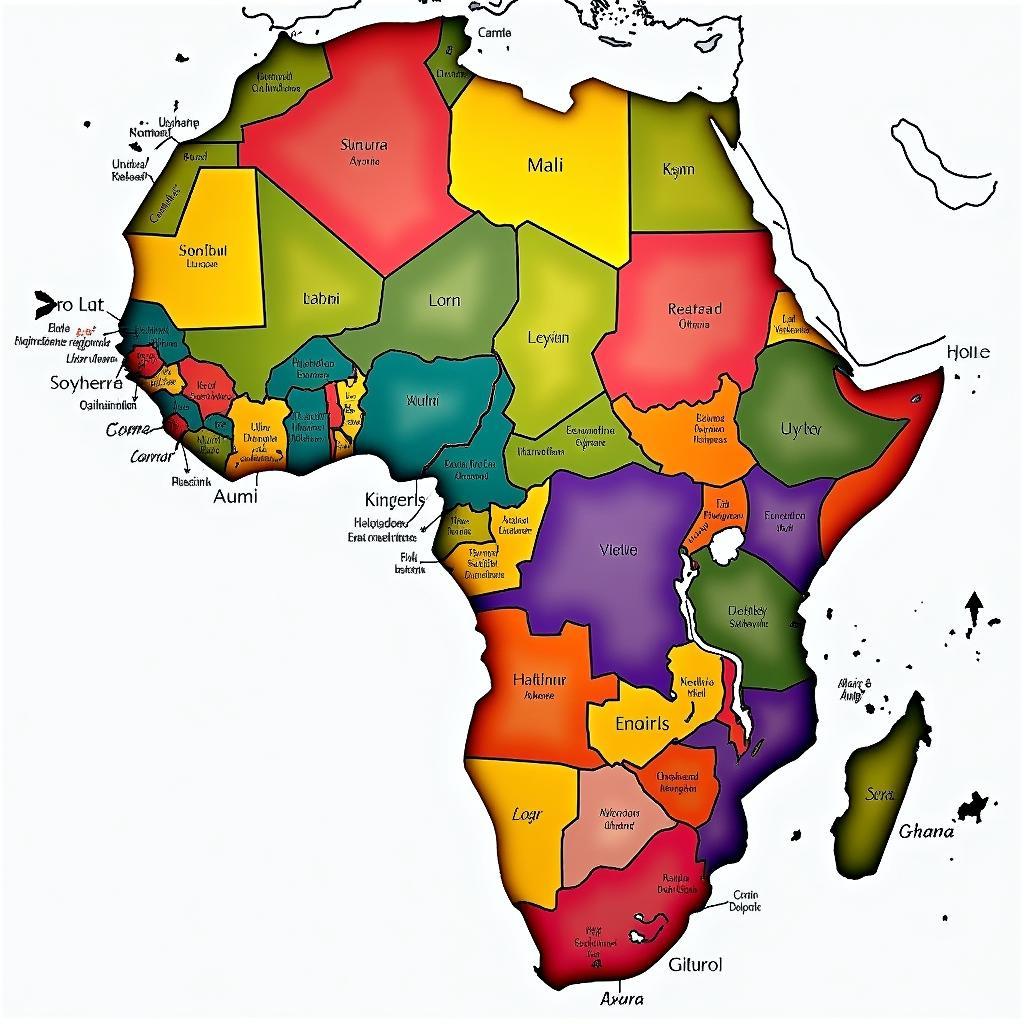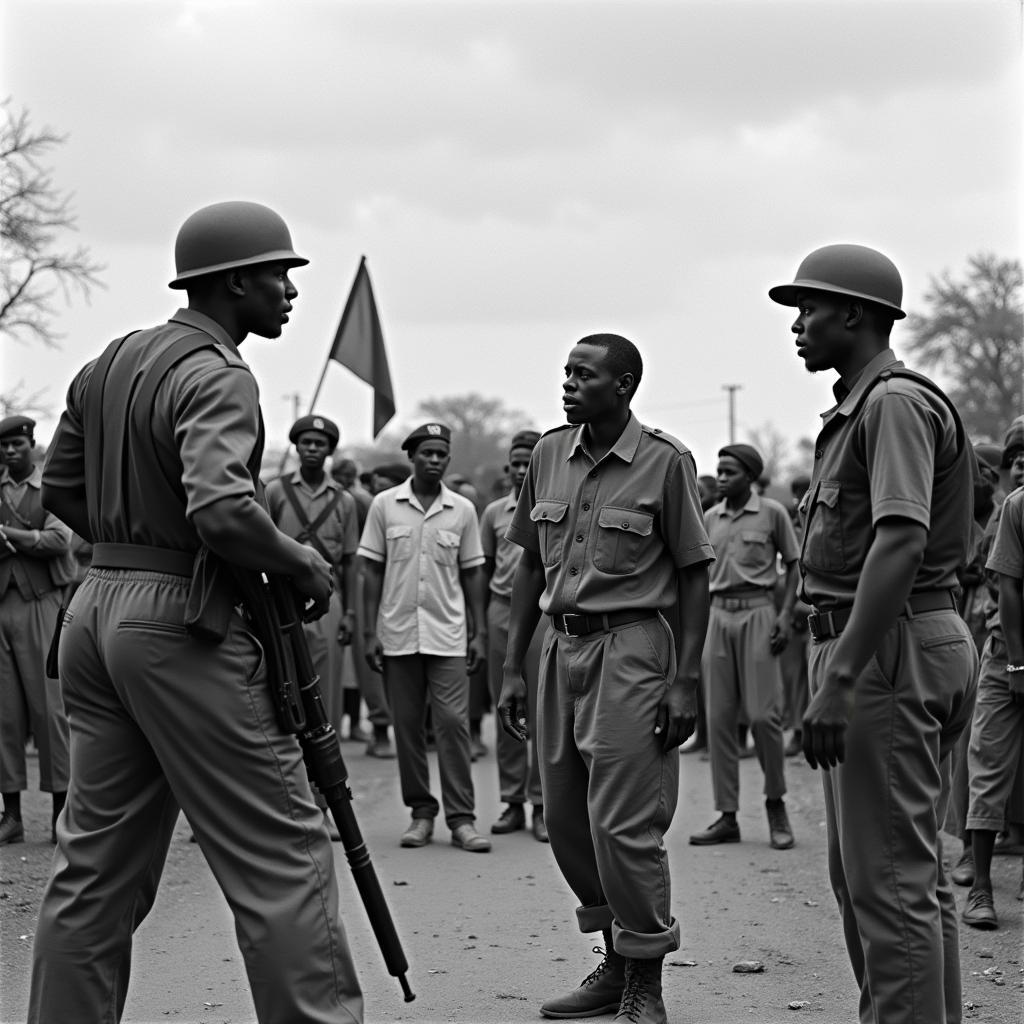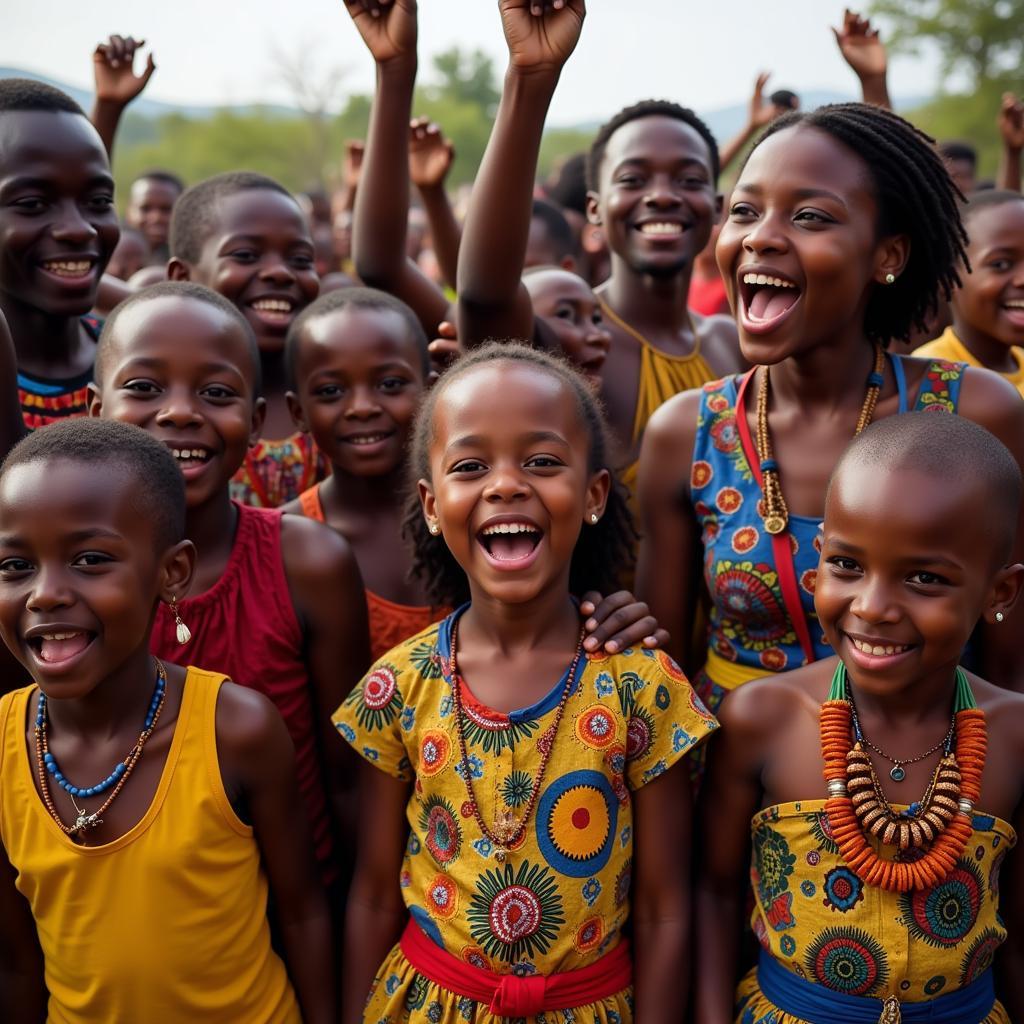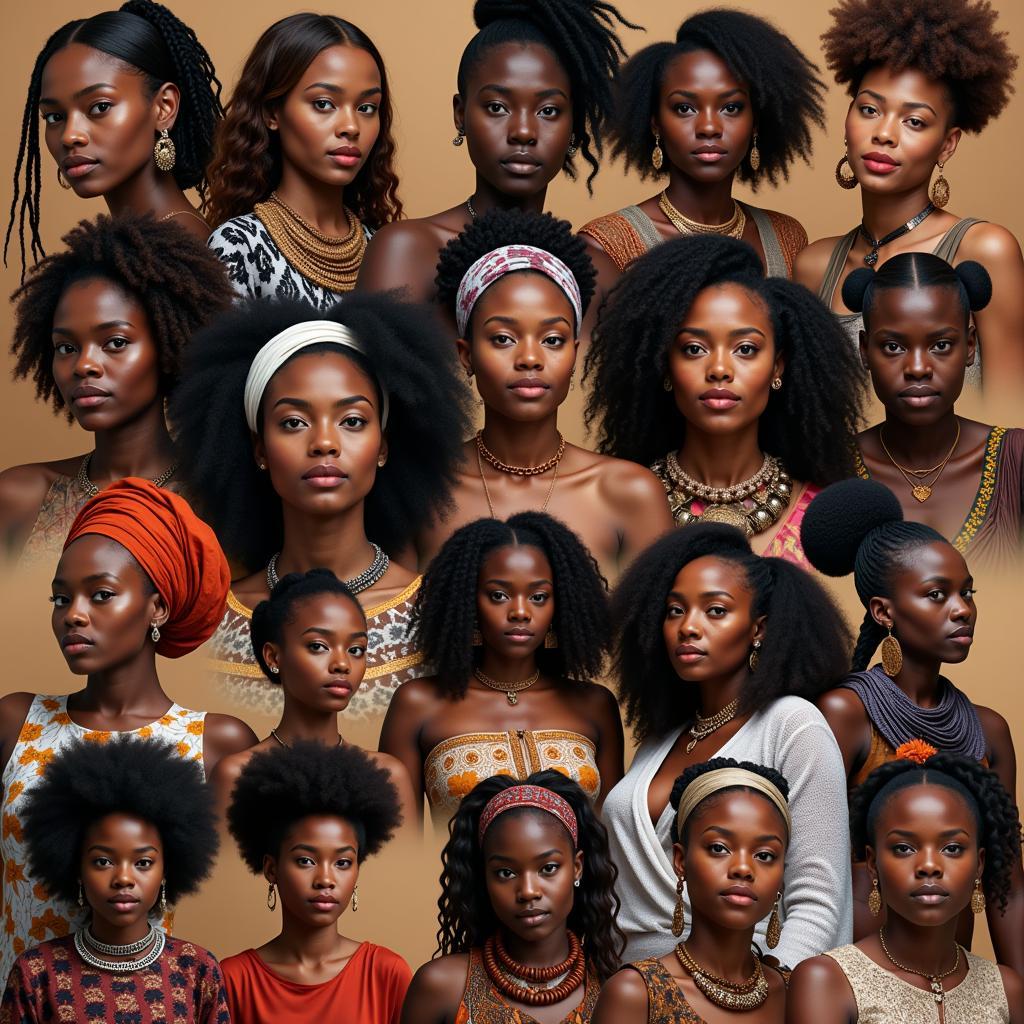The Deep Roots of African Division
The term “African Division” often evokes images of the Berlin Conference, where European powers carved up the continent with little regard for existing ethnic or cultural boundaries. While this historical event undoubtedly plays a significant role, the roots of division in Africa run far deeper and are far more complex than a single event. This article delves into the multifaceted nature of African division, exploring its historical, political, social, and economic dimensions.
Pre-Colonial Seeds of Division
While the Berlin Conference (1884-1885) formalized the scramble for Africa, it’s crucial to acknowledge the pre-existing divisions that existed long before European arrival. Africa, a continent of immense diversity, was home to thousands of ethnic groups, each with its own language, culture, and system of governance. These groups were not always geographically confined or politically unified.
 Map of Pre-Colonial African Kingdoms
Map of Pre-Colonial African Kingdoms
Competition for resources like fertile land and water often led to conflict between groups. Kingdoms rose and fell, empires expanded and contracted, leaving a legacy of shifting alliances and historical grievances that transcended generations. This is not to romanticize a pre-colonial utopia; conflict was a reality, but often driven by the same power struggles and resource competition found throughout human history.
The Legacy of Colonialism
Colonialism undeniably exacerbated existing divisions and created new ones. The arbitrary borders drawn by European powers often grouped together disparate communities with different languages, religions, and customs, while simultaneously dividing groups with shared heritage.
This “divide and rule” strategy, employed by colonial administrations, fostered an environment of mistrust and competition among different groups, often pitting them against each other to maintain control. Furthermore, the introduction of cash crops and forced labor systems disrupted traditional economies and social structures, creating further inequalities and resentment.
Post-Colonial Struggles and the Politics of Identity
The struggle for independence in many African nations was often followed by a period of instability and upheaval. Newly independent states grappled with the challenges of nation-building, often inheriting the divisive structures and power imbalances left behind by colonial regimes.
 Image Depicting Post-Colonial Conflict
Image Depicting Post-Colonial Conflict
The politics of ethnicity and identity became central to the struggle for power in many countries. Political elites often exploited ethnic tensions to consolidate their power base, leading to marginalization, discrimination, and even violence against certain groups. This cycle of exclusion and resentment further deepened divisions within society.
Economic Disparities and the Fight for Resources
While Africa boasts vast natural resources, the benefits of this wealth are often unevenly distributed. Economic disparities, often running along ethnic or regional lines, fuel social unrest and contribute to instability. Competition for control over resources like oil, diamonds, and valuable minerals can exacerbate existing tensions and lead to conflict.
Moreover, the legacy of colonialism, coupled with neo-colonial economic policies, has left many African nations trapped in a cycle of poverty and dependence. This lack of economic opportunity breeds frustration and resentment, making it easier for opportunistic leaders to exploit divisions for their own gain.
The Path Forward: Embracing Unity in Diversity
Addressing the deep roots of African division requires a multifaceted approach that acknowledges historical injustices, promotes good governance, and fosters inclusive economic development. Education plays a crucial role in dismantling harmful stereotypes and promoting inter-community dialogue.
 Celebrating African Unity
Celebrating African Unity
It’s also essential to remember that “African division” is not a foregone conclusion. The continent has a rich history of resilience, resistance, and cross-cultural exchange. From pan-African movements to regional integration efforts, there are countless examples of Africans working together to overcome historical divisions and build a more united and prosperous future.
By acknowledging the complexities of the past and embracing the principles of unity, equality, and shared responsibility, African nations can forge a path towards a more just and equitable future for all.
FAQ
1. Did the Berlin Conference create all the divisions in Africa?
No, while the Berlin Conference had a significant impact, divisions existed in Africa before colonialism due to factors like diverse ethnicities, competition for resources, and shifting kingdoms and empires.
2. How did colonialism worsen divisions in Africa?
Colonialism worsened divisions through arbitrary borders, “divide and rule” tactics, and the introduction of economic systems that disrupted traditional societies and created inequalities.
3. What role does identity politics play in African division?
Identity politics, often manipulated by political elites, exploits ethnic or religious differences to gain or maintain power, leading to marginalization and conflict.
4. How can Africa overcome its divisions?
Overcoming divisions requires good governance, inclusive economic development, addressing historical injustices, promoting education, and fostering inter-community dialogue.
5. Are there examples of unity and cooperation in Africa?
Yes, despite challenges, Africa has a history of pan-African movements, regional integration efforts, and numerous examples of communities working together to overcome divisions.
Need help?
If you need support or have any questions, please don’t hesitate to contact us:
- Phone Number: +255768904061
- Email: kaka.mag@gmail.com
- Address: Mbarali DC Mawindi, Kangaga, Tanzania
Our customer care team is available 24/7 to assist you.


